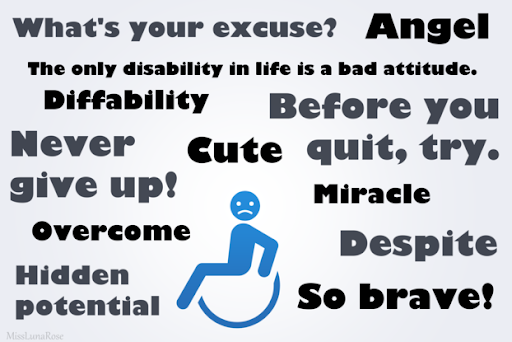May I help you? - Navigating the dilemma of kindness and pity
Disability does not always imply dependency.
Kindness and pity are different. Pitying a disabled person makes them feel inferior.
Acknowledging someone’s achievement simply because of their disability makes them feel objectified.
Be kind. This is the motto for most of us, especially towards someone who seems vulnerable to our naked eyes. Ram stutters when he speaks. He is visited by his aunt one day. She gave him a book and said, “Beta, I feel so sorry for you. I pray to God every day that your stuttering goes away.” Was she being unkind or rude? No. Were her intentions wrong? Not at all. But was she being kind? No!

When do we start to view someone as different?
We do this when we see someone appear or behave in a different way than the set standards of society or human beings. People with a disability fall into this category. We may try not to judge them and most of the time be as helpful as we can, but the way of showing it might rub off as the opposite, either being too inspirational or pitiful.
Inspiration porn refers to the idea of portraying a disabled person as an inspiration to an able-bodied individual. The word porn is deliberately used to highlight the objectification of the disabled. The term was coined by Stella Young, a disability activist to highlight the absurd representation of the disabled by the world. As an able-bodied person, it must be difficult to understand this perspective. Obviously, no bad intention is involved. They might even be perceived as rude and ungrateful.
When we hear the word ‘disability’, the first thoughts that come to our mind are negative. We stereotype them as being miserable and tragic, etc. The problem starts when people start portraying the normal things that they do as extraordinary. Ironically it makes a disabled person feel inferior.

How can we deal with the dilemma?
A few things that we can do while facing such a situation are-
- Being mindful so as not to highlight their disability while conversing with them. They do not want to be reminded time and again that something is odd about them.
- Many disabled people like to do things on their own. The habit of jumping forward to help may seem offensive to many. Instead, we can ask if they need any help or give a heads-up like “Hey, let me help you with that.”
- Try to avoid awkward situations like talking indirectly to a disabled person, or touching their equipment before asking.
- Avoid making pre-assumptions about their situation.
Concluding Thoughts
Being kind to someone is always a good deed. But everyone’s perspective is different and our good intentions might not seem appropriate to many. We should try to avoid grouping and stereotyping all disabled people as one. Everyone is unique and carries their own strength, weaknesses and boundaries. Disability should not be a criterion to judge them because kindness is non-judgemental.
Author

